The fellows of IBEC Postdoctoral Programme will have the opportunity to stay up to 3 months of their 2 year contract at IBEC at other international/intrasectorial institutions. Stays will be funded by the BEST programme.
In order to offer BEST fellows the highest quality of research and training options in terms of the triple “i” (interdisciplinary, international and intersectorial) dimension, we have assembled a network of partner organizations that covers at an international level all scientific and technological expertise related to research fields offered to BEST fellows at IBEC. Moreover, the network includes stakeholders from all three sectors involved in biomedical research: academia, clinicians and industry.
The hosting institutions of BEST fellows will not be restricted to the current list of Partner Organisations. Depending on the needs of BEST fellows, more organizations could be added.
| Partner organisation | Country | |
|---|---|---|
| The University of Melbourne Melbourne School of Engineering |
Australia | |
 The Melbourne School of Engineering is internationally recognized for its vibrant community of scholars and students, its leading research and innovative curriculum in Engineering and IT. The Melbourne School of Engineering undertakes interdisciplinary research in three key domains: The Melbourne School of Engineering is internationally recognized for its vibrant community of scholars and students, its leading research and innovative curriculum in Engineering and IT. The Melbourne School of Engineering undertakes interdisciplinary research in three key domains:– Optimisation of resources and infrastructure – Convergence of engineering and IT with the life sciences – Networks and data in society Research within each of these areas is undertaken by multidisciplinary teams from across the School and University, in collaboration with academic and industry partners. Engineering and IT staff bring a global perspective to an internationally endorsed curriculum with qualifications and experience from around the world. Postdocs can acquire experience and practical training in a wide range of disciplines and teams. |
||
| IMEC Stichting IMEC Nederland |
Netherlands | |
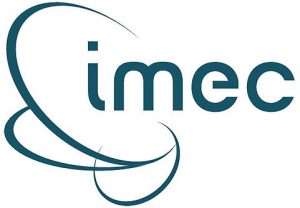 Stichting IMEC Nederland’s research focuses on next generation wireless transducer solutions, including the development of low-power components for wireless connectivity, digital signal processing, energy management and sensor technologies. Based on these building blocks, Stichting IMEC Nederland build system solutions in the area of health and lifestyle that contain embedded algorithms to address specific applications. In this context, a cloud-based analytic platform for bid data storage and analysis and several biomedical feature extractions software libraries that deal with ExG and contextual information are available. Stichting IMEC Nederland’s research focuses on next generation wireless transducer solutions, including the development of low-power components for wireless connectivity, digital signal processing, energy management and sensor technologies. Based on these building blocks, Stichting IMEC Nederland build system solutions in the area of health and lifestyle that contain embedded algorithms to address specific applications. In this context, a cloud-based analytic platform for bid data storage and analysis and several biomedical feature extractions software libraries that deal with ExG and contextual information are available. |
||
| Novo Nordisk | Denmark | |
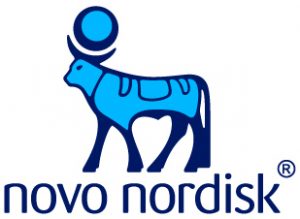 Novo nordisk is a world-leading pharmaceutical company focussing on developing innovation protein drugs within diabetes, obesity and haemophilia. The research organization is primarily based in Denmark and focuses on protein and peptide chemistry, diseased biology and pharmacology as well as drug delivery. Novo nordisk is a world-leading pharmaceutical company focussing on developing innovation protein drugs within diabetes, obesity and haemophilia. The research organization is primarily based in Denmark and focuses on protein and peptide chemistry, diseased biology and pharmacology as well as drug delivery. |
||
| Université Grenoble Alpes | France | |
 The UGA in Grenoble is a leading University of Science Technology and Health. UGA is developing outstanding research at national and international level, as well as international and research oriented Education. International relations have pride of place in UGA, which is open to the world and part of a diverse and growing network of partnerships. The UGA in Grenoble is a leading University of Science Technology and Health. UGA is developing outstanding research at national and international level, as well as international and research oriented Education. International relations have pride of place in UGA, which is open to the world and part of a diverse and growing network of partnerships.The UGA’s traditions – of innovation, of diversity, of excellence – are embodied in its expertise in education, creating a welcoming environment for international students, faculty, and staff and fostering the necessary skills in those who wish to broaden their horizons with an international experience. Innovation and excellence also enrich and sustain its world-class research, making the most of an exceptional scientific environment with strong ties to business and industry. Working within its 80 multidisciplinary laboratories, its community of researchers includes experts from all over the world, who work across disciplines in the service of knowledge and in the spirit of inquiry. |
||
| Charité Universitätsmedizin Berlin Sleep Medicine Center |
Germany | |
| Fraunhofer Institute for Biomedical Engineering | Germany | |
| With a good balance between basic and applied research, the institute promotes the “lived” technology transfer in medicine and biotechnology, laboratory technology, food, chemical and pharmaceutical industries, and environmental technology as well as in other areas of industry and knowledge-intensive services. For many years, the Fraunhofer IBMT has been working in the field of stem cell research. In recent years this has been extended to the production and characterization/expansion of induced pluripotent stem cells (iPS). The institute is involved as part of a major European project in building an international iPS cell bank. |
||
| Max Planck Institute for Intelligent Systems | Germany | |
The Institute takes a highly interdisciplinary approach that combines mathematics, computation, material science, and biology. |
||
| Trinity College, the University of Dublin Centre for Bioengineering |
Ireland | |
– Biomechanics and Mechanobiology – Tissue Engineering and Regenerative Medicine – Neural Engineering – Medical Devices & Advanced Drug Delivery These themes, based on the intersection of biomedical science and engineering, form the research foundation for enabling technologies for advances in key areas of active and passive implantable devices, surgical and medical device design, as well as informing clinical studies and interventions in ageing, neurodegeneration and rehabilitation. The Trinity Centre for BioEngineering provides a structure to bring bioengineers, basic scientists and clinicians together to focus on important clinical needs. The interdisciplinary profile of the Principal investigators ensures the Trinity Centre for Bioengineering as a catalyst to impact medicine and patient care through researching and developing the most advanced engineering solutions to critical clinical problems. The academic and clinical Principal investigators are drawn from the School of Engineering, School of Medicine, School of Natural Sciences and Trinity College’s teaching hospitals Dublin Dental University Hospital, St James’s Hospital and Tallaght Hospital. The Centre has considerable interaction with the medical device industrial sector in Ireland and internationally, with this sector actively collaborating in research at the Centre. |
||
| Hebrew University of Jerusalem Alexander Grass Centre for Bioengineering |
Israel | |
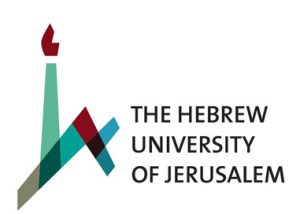 The Hebrew University of Jerusalem was founded in 1925 by Albert Einstein and Sigmoid Freud and is consistently ranked as one of the top 100 universities worldwide. The Hebrew University counts 8 Nobel laureates among its faculty and alumni, and is the largest recipient of ERC awards across Europe. Research funding of over 80 million euro supports 4,500 projects and over 10,000 graduate students working toward advanced degrees. The Hebrew University has educated and trained over 20% of all doctoral candidates in both Israel and the Palestinian territories contributing to the region stable development. The Hebrew University of Jerusalem was founded in 1925 by Albert Einstein and Sigmoid Freud and is consistently ranked as one of the top 100 universities worldwide. The Hebrew University counts 8 Nobel laureates among its faculty and alumni, and is the largest recipient of ERC awards across Europe. Research funding of over 80 million euro supports 4,500 projects and over 10,000 graduate students working toward advanced degrees. The Hebrew University has educated and trained over 20% of all doctoral candidates in both Israel and the Palestinian territories contributing to the region stable development.The Alexander Grass Center for Bioengineering an interfaculty institute supporting the research of outstanding faculty and postdoctoral fellows in Biomedical Engineering, Systems Biology and Biophysics. Projects range nanotechnology based diagnostic devices, innovative medical devices and advanced genetic models to microchip alternatives for animal and human testing. |
||
| IBM Research Health Informatics |
Israel | |
 IBM Research has deep expertise in analysing healthcare data including medical records, medical images, quantified self-data, medical literature, genomic data and more. Specialist at the Research labs have broad subject matter experience in machine learning, text mining and bioinformatic; Most of the researchers have PhD diploma from computer science, math or science departments of leading universities. The healthcare informatics team’s efforts began in the early 1990s with the development of CMS’ data model for reporting and analytics and evolved through creating decision support system for physicians such as the EuResist engine supporting physicians treating HIB patients. Since 2010 the healthcare informatics team published close to 200 papers, its members chaired and co-chaired various workshops such as the clinical genomic analysis conferences at IBM Research in Haifa. IBM Research has deep expertise in analysing healthcare data including medical records, medical images, quantified self-data, medical literature, genomic data and more. Specialist at the Research labs have broad subject matter experience in machine learning, text mining and bioinformatic; Most of the researchers have PhD diploma from computer science, math or science departments of leading universities. The healthcare informatics team’s efforts began in the early 1990s with the development of CMS’ data model for reporting and analytics and evolved through creating decision support system for physicians such as the EuResist engine supporting physicians treating HIB patients. Since 2010 the healthcare informatics team published close to 200 papers, its members chaired and co-chaired various workshops such as the clinical genomic analysis conferences at IBM Research in Haifa. |
||
| Tel Aviv University | Israel | |
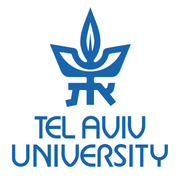 Tel Aviv University is the largest comprehensive research university in Israel. Comprising 9 faculties, 24 Schools and 105 departments, the university has over a hundred research centres and institutes. Tel Aviv University offers an extensive range of study programs, in all area of science, to its 33,000 students among them 14,000 Masters and Doctorate candidates. On top of that Tel Aviv University has introduced an ever-increasing number of interdisciplinary programs in vital new fields, such as Bioinformatics, Biotechnology and the programs provided by the Nanoscience and Nanotechnology centre (combining 4 faculties: Life sciences, exact sciences, Engineering school and the Medical school with its 17 hospitals affiliated). Among the university’s 1,000 faculty members are internationally renowned scientists who have made a major contribution to their respective fields. In 2013 Tel Aviv University was ranked 18th in the world in the criteria- citations per faculty member. Tel Aviv University participates in the European Framework Programs since the 5th Framework Program. With participation in 50 projects in FP5 and 75 projects in FP6 and 225 in FP7, 33 of which are ERC’s and 108 Marie Curie Grants. Tel Aviv University is the largest comprehensive research university in Israel. Comprising 9 faculties, 24 Schools and 105 departments, the university has over a hundred research centres and institutes. Tel Aviv University offers an extensive range of study programs, in all area of science, to its 33,000 students among them 14,000 Masters and Doctorate candidates. On top of that Tel Aviv University has introduced an ever-increasing number of interdisciplinary programs in vital new fields, such as Bioinformatics, Biotechnology and the programs provided by the Nanoscience and Nanotechnology centre (combining 4 faculties: Life sciences, exact sciences, Engineering school and the Medical school with its 17 hospitals affiliated). Among the university’s 1,000 faculty members are internationally renowned scientists who have made a major contribution to their respective fields. In 2013 Tel Aviv University was ranked 18th in the world in the criteria- citations per faculty member. Tel Aviv University participates in the European Framework Programs since the 5th Framework Program. With participation in 50 projects in FP5 and 75 projects in FP6 and 225 in FP7, 33 of which are ERC’s and 108 Marie Curie Grants. |
||
| National Research Council Department of Chemical Sciences & Materials Technology |
Italy | |
 The National Research Council (CNR) of Italy is a national public organization committed to carry out, promote, spread, transfer and improve research activities in the main sectors of knowledge growth and of its applications for the scientific, technological, economic and social development of the Country. The National Research Council (CNR) of Italy is a national public organization committed to carry out, promote, spread, transfer and improve research activities in the main sectors of knowledge growth and of its applications for the scientific, technological, economic and social development of the Country.The Department of Chemical Science and Materials Technology (CNR-DSCTM) is one of the seven departments of the CNR. The CNR-DSCTM research interests focus on “Chemical Manufacturing & Advanced Materials Technology”. The main research activities, performed by its 14 institutes spread all over the country, deal with Sustainable Chemistry; Advanced Materials and Key Enabling Technologies and Nanomedicine. Within this organization, CNR-DSCTM has outstanding expertise on biomaterials and functional materials for health-care applications and the necessary research infrastructures to lead such research activities. The activities in materials and testing protocols for materials for health care applications are included in the nanomedicine research platform of the DSCTM-CNR, where the main aim is the development of new intelligent and multifunctional biomaterials (extracellular matrix analogues) for tissue regeneration and repair, bioelectronics platform, drug delivery. |
||
| Politecnico di Milano Department of Biomedical Engineering |
Italy | |
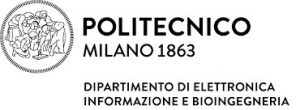 The Bioengineering Area applies Engineering methodologies and technologies to research on biological systems and health sciences. Methods, devices, and systems are developed with a multidisciplinary approach, which starts from the molecular and the cellular level and goes all the way up to complex living organism, with the purposes of improving diagnosis and therapy as well as health and daily life structures and services. The Bioengineering Area supports education and training activities encompassing the undergraduate and graduate Courses in Biomedical Engineering, as well as the interdepartmental Bioengineering PhD program. It also promotes the dissemination of activities and results to private and public health organizations, industrial environments, biomedical engineering professionals, and society, through technical support, consulting, research and development as well as transfer of knowhow, innovative products and technologies. The Bioengineering Area applies Engineering methodologies and technologies to research on biological systems and health sciences. Methods, devices, and systems are developed with a multidisciplinary approach, which starts from the molecular and the cellular level and goes all the way up to complex living organism, with the purposes of improving diagnosis and therapy as well as health and daily life structures and services. The Bioengineering Area supports education and training activities encompassing the undergraduate and graduate Courses in Biomedical Engineering, as well as the interdepartmental Bioengineering PhD program. It also promotes the dissemination of activities and results to private and public health organizations, industrial environments, biomedical engineering professionals, and society, through technical support, consulting, research and development as well as transfer of knowhow, innovative products and technologies.The research activities of the Bioengineering Area are divided into four main lines, which reflect the different aspects of Biological and Health Technologies: “Biomimetics and micro-nano technologies”; “Technologies for functional evaluation and rehabilitation”; “Technologies for therapy”; “Physiological modeling, diagnostics, health systems and e-health”. These application research lines integrate several fields of expertise concerning data, signal and image processing, modeling, ICT, instrumentation technologies, motion capturing, robotics, biomechanics, fluidics, micro-technologies. The 32 faculty and permanent staff members are supported by about 80 post-docs and PhD students, contributing to both research and educational activities. |
||
| Dankook University Institute of Tissue Regeneration Engineering (ITREN) |
Korea | |
| I3S: Instituto de Investigação e Inovação em Saúde | Portugal | |
The central guiding principle for the i3S is scientific excellence ensured through the implementation of external evaluation of our activities, carried out on a regular basis by the External Advisory Board (EAB) and by promoting integration of basic, applied and translational activities. In this context, the inclusion of groups led by scientists with an internationally recognized CV is of great importance. Its research is organized into three transdisciplinary programs that cluster major areas of competence. Other essential aspects of our activity are: sharing of core scientific services, active promotion of technology transfer and entrepreneurship, fostering international and integrative PhD programs and maintaining long-term institutional commitment to outreach activities. |
||
| National University of Singapore Department of Biomedical Engineering |
Singapore | |
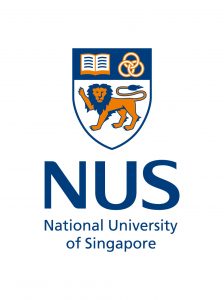 The Department of Biomedical Engineering at NUS was established in 2002. Our academic staff has varied backgrounds and training in engineering, life sciences and medicine with many of whom has joint appointments with either the School of Medicine, Faculty of Science, Faculty of Engineering, Mechanobiology Institute or A*STAR Research Institutes. This is a reflection of the multidisciplinary and integrative approach we take in biomedical engineering research and education. Our core research expertise include Biomaterials, Biomechanics, Bionanotechnology, Biosignal Processing, Biosensors, Biomicrofluidics and Computational Methods with applications in Tissue Engineering, Therapeutic Delivery Systems, Biomedical Imaging and Instrumentation, and Medical Devices just to name a few. The Department of Biomedical Engineering at NUS was established in 2002. Our academic staff has varied backgrounds and training in engineering, life sciences and medicine with many of whom has joint appointments with either the School of Medicine, Faculty of Science, Faculty of Engineering, Mechanobiology Institute or A*STAR Research Institutes. This is a reflection of the multidisciplinary and integrative approach we take in biomedical engineering research and education. Our core research expertise include Biomaterials, Biomechanics, Bionanotechnology, Biosignal Processing, Biosensors, Biomicrofluidics and Computational Methods with applications in Tissue Engineering, Therapeutic Delivery Systems, Biomedical Imaging and Instrumentation, and Medical Devices just to name a few. |
||
| Bellvitge Hospital Bellvitge Biomedical Research Institute (IDIBELL) |
Spain | |
The more than 800 researchers in the field of basic research, clinical and epidemiological working closely, favours the scientific results of the centre. During 2014 IDIBELL’s scientific production was of high magnitude and quality, as exemplied by 949 scientific publications with impact factor indexed in PubMed and WOS. All of the above position the institute as one of the health research centres with highest scientific production in Spain. In addition, IDIBELL focuses much of its efforts on innovation and technology transfer in biomedicine, creating value for the continuous improvement of health and quality of life of patients. |
||
| Biopraxis Research | Spain | |
 Biopraxis Research AIE was constituted to drive and support all the research and innovation activities for Praxis Pharmaceutical Group. As a company, all the knowledge acquired from the basic research is fully implemented for the production of commercially available medications, based on small molecules (from natural compounds), bio and nanotechnology. One of its main strategic lines is focused on the development of novel treatments and diagnosis strategies for neglected diseases, with a special focus in regenerative medicine, minority types of cancer, rare and neglected diseases, with. Biopraxis is linked to several networks, platforms and research and industrial partners, allowing a continuous exchange of information and dissemination of knowledge. Biopraxis is also working in the development and translation of nanopharmaceuticals based on different technologies (Solid Lipid Nanoparticles, Magnetic Nanoparticles, Lipid Nanovesicles), which improve therapeutic action of APIS and allow protection of biological molecules and targeting, imaging and future theragnostic of different diseases. All the production processes are implemented in our GMP installations in Álava Technology Park. Biopraxis Research AIE was constituted to drive and support all the research and innovation activities for Praxis Pharmaceutical Group. As a company, all the knowledge acquired from the basic research is fully implemented for the production of commercially available medications, based on small molecules (from natural compounds), bio and nanotechnology. One of its main strategic lines is focused on the development of novel treatments and diagnosis strategies for neglected diseases, with a special focus in regenerative medicine, minority types of cancer, rare and neglected diseases, with. Biopraxis is linked to several networks, platforms and research and industrial partners, allowing a continuous exchange of information and dissemination of knowledge. Biopraxis is also working in the development and translation of nanopharmaceuticals based on different technologies (Solid Lipid Nanoparticles, Magnetic Nanoparticles, Lipid Nanovesicles), which improve therapeutic action of APIS and allow protection of biological molecules and targeting, imaging and future theragnostic of different diseases. All the production processes are implemented in our GMP installations in Álava Technology Park. |
||
| Devicare | Spain | |
 Devicare is a medtech company, based in Barcelona, dedicated to the design, development and manufacturing of medical devices and in vitro diagnostic devices for home use to control and monitor key biomarkers of chronic diseases. Devicare has an intense collaboration with IBEC and other institutions to research, design and develop new sensors, biosensors and manufacturing techniques to measure and quantify these biomarkers. Devicare is a medtech company, based in Barcelona, dedicated to the design, development and manufacturing of medical devices and in vitro diagnostic devices for home use to control and monitor key biomarkers of chronic diseases. Devicare has an intense collaboration with IBEC and other institutions to research, design and develop new sensors, biosensors and manufacturing techniques to measure and quantify these biomarkers. |
||
| Genomica | Spain | |
Genomica develops tests for molecular laboratory labs and hospitals with small and high throughput all over the world. It also offers NGS sequencing services and DNA identification analysis. Postdocs can acquire experience and practical training in new methodologies in diagnostrics, DNA sequencing, arrays design and manufacturing, NGS, DNA fingerprinting and many more. |
||
| Hospital Germans Trias i Pujol Health Sciences Research Institute Germans Trias i Pujol |
Spain | |
| Hospital Sant Joan de Deu Hospital Sant Joan de Deu Research Institute |
Spain | |
HSJD has a team of over 200 clinical and non-clinical researchers committed to basic and translational research in order to continue to improve the cutting edge quality of health care provided to its patients. The Hospital has currently 8 consolidated research groups that are primarily active in the fields of maternal and child health, focused on the fields of pediatric endocrinology, neurological diseases, infectious diseases and developmental cancer. Currently, there are also emerging research groups that focus their attention on clinical medicine and epidemiology of high-prevalence disorders, the influence of the environment on the welfare of children and adolescents and a third group dedicated to nursing, education and society. |
||
| iMicroQ | Spain | |
– Thick film screen printing for production of microsystems: own manufacturing technology of biosensors and integrated microsystems for quantitative detection, including a dedicated production line capable of manufacturing up to 15000 complete sensors per week. – Development of highly selective culture medium. – Design of integrated protocols of sample treatment, concentration and electrochemical detection. iMICROQ focuses its business development primarily on the penetration of the market of analysis of food safety and veterinary diagnosis. In the future, it will focus on the human clinical diagnostics market and the development of processes and products. Other market segments of economic interest are the control of pollutants in the environment, water control and military industries. iMICROQ has researchers and technicians with experience and knowledge the development of complete commercial detection platforms. These applications are based in the following characteristics: easy to use, fast, inexpensive, quantitative but reliable solutions, portable and not requiring technical expertise. iMICROQ has collaborative agreements and partnerships with food industry and specialized research centres. It also has its own research and development facilities in the following areas: electrochemistry, microbiology and molecular biology, development and manufacturing of sensors and microsystems. |
||
| Medcomtech | Spain | |
| MedTronic | Spain | |
| Neos Surgery | Spain | |
| STAT Diagnostica | Spain | |
– Improved clinical standards by diagnosing and treating more efficient and patient-centered disease. – A diagnostic solutions at the point of care that will reduce and optimize increasing health expenditure in modern countries. Its business focuses on the development of a platform for in-vitro diagnostic designed to perform tests at the Point of Care. The analytical platform is easy to use and integrate all analytical processes in a cartridge analysis own industrial property. Applications main interest is the detection of infectious diseases, detection of cardiac markers or applications, genomic drgu for which, based on current protocols laboratory central are not efficient. |
||
| Vall d’Hebron University Hospital Vall d’Hebron Research Institute |
Spain | |
 Fundació Hospital Universitari Vall d’Hebron – Institut de Recerca is a public sector Foundation that wishes to foster, promote and develop scientific and technological research, teaching and the education in the field of the Hospital Universitari Vall d’Hebron, the Universidad Autónoma de Barcelona and of its spheres of influence. Likewise, is a main objective of the VHIR to boost the biomedical research and knowledge in the field of health and life sciences in the areas of basic, clinical, epidemiological, economic and health care services in order to favor the transfer of knowledge allowing a better diagnosis, treatment and prevention of the health problems of our society. Fundació Hospital Universitari Vall d’Hebron – Institut de Recerca is a public sector Foundation that wishes to foster, promote and develop scientific and technological research, teaching and the education in the field of the Hospital Universitari Vall d’Hebron, the Universidad Autónoma de Barcelona and of its spheres of influence. Likewise, is a main objective of the VHIR to boost the biomedical research and knowledge in the field of health and life sciences in the areas of basic, clinical, epidemiological, economic and health care services in order to favor the transfer of knowledge allowing a better diagnosis, treatment and prevention of the health problems of our society. |
||
| Vecmedical | Spain | |
 Vecmedical is a Manufacturer of Medical Devices and in-Vitro Diagnostics Products. Vecmedical works together with the sector stakeholders to detect healthcare professional needs, look for alternative solutions, through open innovation get the potential research outputs and use for the design and development of the appropriate devices to solve mentioned needs, get the certification (CE, FDA) of the commercial items thanks to the Engineering and Regulatory Affairs resources and finally manage the supply chain, where a wide spread of partners from different locations and technologies provide the components so that Vecmedical can bring them out to the market through their well-recognised distributors and Commercial Agents. Vecmedical is a Manufacturer of Medical Devices and in-Vitro Diagnostics Products. Vecmedical works together with the sector stakeholders to detect healthcare professional needs, look for alternative solutions, through open innovation get the potential research outputs and use for the design and development of the appropriate devices to solve mentioned needs, get the certification (CE, FDA) of the commercial items thanks to the Engineering and Regulatory Affairs resources and finally manage the supply chain, where a wide spread of partners from different locations and technologies provide the components so that Vecmedical can bring them out to the market through their well-recognised distributors and Commercial Agents. |
||
| King’s College London Division of Asthma, Allergy and Lung Biology |
UK | |
The Respiratory Muscle Research Group (LRMRG), led by Professor John Moxham, is a collaboration between scientists and clinicians working in the field of respiratory physiology and skeletal muscle function in health and disease. King’s College Hospital’s respiratory muscle unit, in collaboration with its sister laboratories at St Thomas’ Hospital and the Royal Brompton Hospital, is internationally-renowned for its specialist interest in respiratory muscle function in health and disease. As such, post-docs will be directly supported by a highly experienced, multidisciplinary research team of clinician scientists and respiratory physiologists. The unit provides a unique opportunity to be trained in the techniques involved in measuring respiratory muscle function, neural respiratory drive, and physiological respiratory control mechanisms. Postdocs will also benefit from the KCL Postdoctoral support network and Researcher Development Programme provided by King’s College London Graduate School. The research group encourages presentation of work at national and international conferences (e.g. European Respiratory Society and American Thoracic Society International Congresses) and preparation of manuscripts for publication in peer-reviewed journals. |
||
| University of Manchester School of Chemical Engineering and Analytical Science integrates Chemical Engineering, Instrumentation and Analytical Science |
UK | |
The School Chemical Engineering will be able to provide postgraduate training and practical experience in a variety of technical subject areas from biotechnology, process modelling and control to large scale systems. Of special interest is the biochemistry and physiology of olfaction, chemical sensors and biosensors – sensing materials, especially conducting polymers, electronics hardware and software, together with pattern recognition. |
||
| Center for Emergent Behaviors of Integrated Cellular Systems | USA | |
 EBICS is a National Science Foundation (NSF) funded Science and Technology Center bridging across three major institutions: MIT, Georgia Technological Institute, and the University of Illinois, Urbana‐Champaign. The EBICS mission is to create a new scientific discipline for building living, multi-cellular machines that solve real world problems in health, security, and the environment. This mission is being achieved through EBICS’ integrated research and education efforts, human resource development, diversity and outreach programs, and knowledge transfer activities. Specifically, we have developed Center goals and plans in six areas: Integrative Research, Education, Ethics, Knowledge Transfer, Human Resources and Diversity, and Leadership and Management in pursuit of our mission. Center research aims to develop new approaches to the design, development and fabrication of cellular machines drawing upon the inherent capability of cells to sense their environment, interact with neighboring cells and the surrounding matrix, and develop muti‐cellular systems capable of performing complex tasks. EBICS is a National Science Foundation (NSF) funded Science and Technology Center bridging across three major institutions: MIT, Georgia Technological Institute, and the University of Illinois, Urbana‐Champaign. The EBICS mission is to create a new scientific discipline for building living, multi-cellular machines that solve real world problems in health, security, and the environment. This mission is being achieved through EBICS’ integrated research and education efforts, human resource development, diversity and outreach programs, and knowledge transfer activities. Specifically, we have developed Center goals and plans in six areas: Integrative Research, Education, Ethics, Knowledge Transfer, Human Resources and Diversity, and Leadership and Management in pursuit of our mission. Center research aims to develop new approaches to the design, development and fabrication of cellular machines drawing upon the inherent capability of cells to sense their environment, interact with neighboring cells and the surrounding matrix, and develop muti‐cellular systems capable of performing complex tasks.EBICS draws upon the infrastructure and facilities at each of the three major partner institutions, as well as a number of affiliated universities, to conduct its research. Visitors to EBICS will have access to these same state‐of‐the-art facilities, and have the opportunity to interact with numerous ongoing projects. We anticipate an active exchange of researchers and ideas as a result of this partnership. |
||
| Northwestern University Simpson Querrey Institute for BioNanotechnology (SQI) |
USA | |
 SQI’s mission is twofold: 1) to combine nanoscience, nanotechnology, and engineering with medicine to enhance human health, and 2) to discover and develop new bio-inspired technologies that will promote a secure and sustainable energy future. The Institute provides an intellectual framework and interdisciplinary environment that connects investigators across disciplines and institutional boundaries in fields that intersect bionanotechnology. SQI’s mission is twofold: 1) to combine nanoscience, nanotechnology, and engineering with medicine to enhance human health, and 2) to discover and develop new bio-inspired technologies that will promote a secure and sustainable energy future. The Institute provides an intellectual framework and interdisciplinary environment that connects investigators across disciplines and institutional boundaries in fields that intersect bionanotechnology. |
||
Please note that although these organisations have shown their support to the BEST programme, they are not obliged to accept any fellow, and every single case will be studied individually with the fellow and the hosting organisation.
